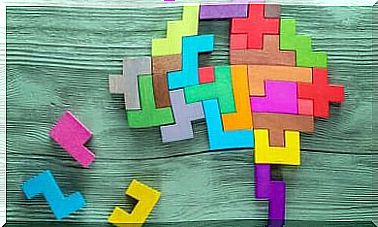People With Depression And How They See Themselves

We all fight our own battles. Work, family, relationships… Every day is a new challenge in so many different ways. However, it is often the struggle that leads to crippling depression that people with depression struggle with.
Experts say that people with depression tend to aggravate the effects of their symptoms. A report published by Dr. Kopala-Sibley suggests that if you are depressed, you focus less on the symptoms and more on how you feel. The latter can be the cause of your depression. Experts say it is better to treat the cause of this condition rather than just the symptoms.
The conclusions from this study support Higgins’ theory of self-deviation. According to this theory, the self has three domains: the actual self, the ideal self, and the self one should be. Kopala-Sibley’s research indicates that when there is a discrepancy between the actual self and the ideal self, depression manifests itself.

What causes self-abnormalities?
You build your self-concept based on many variables. Although people tend to believe that the “self” is a simple entity, it is not true. It is the self that defines you, the person you actually are: the actual self.
However, there are also parallel selves, such as the self you want to be, or the ideal self. It is also the responsible self, or as Higgins described it, the self one should be. This is the one you feel you should be based on the customs and social roles that you adopt.
For example, you may be a competent, intelligent, and hard-working person, but if your job does not allow you to express these qualities, a conflict will arise. In this case, shifts between the actual self and the ideal self provide fertile ground for developing depression.
Another thing that depends on the distance we perceive between the actual self and the ideal self is self-confidence. It is closely linked to your psychological well-being. You are more prone to depression if you have low self-esteem. Research shows that people with low self-esteem have lower levels of gray matter in areas of the brain that help you understand what other people think of you.
People with depression and inner dialogue
Your actual and ideal selves relate to each other based on a story you tell about yourself and how others see you. Self-confidence is higher when there is not much difference between the two. If you are experiencing symptoms of depression, you probably have a significant discrepancy between your actual and ideal self.
The inner dialogue that people with depression often have makes them believe that their actual selves are far from their ideal selves. If you want to remove that distance, try changing your internal history. Focusing on what you can change to get closer to your ideal self is a good start.
Mindfulness in people with depression
If it does not help to change the way you tell your own story, practicing mindfulness is another good strategy. Mindfulness can help close the gap between the actual and the ideal self.
The immediate benefit of this type of meditation is that you learn to observe your own thoughts without judging them. Letting go of judgment can help improve the symptoms of depression significantly. Gradual self-acceptance is another way of bringing the actual and the ideal self closer together.

To adjust who you really are with your ideals
The goal here is not perfection. Instead, acknowledge that you have room for improvement. Being gentle and kind to yourself creates an environment that contributes much more to setting goals and getting rid of those you do not need.
Negative emotional states often aggravate the gap between the actual and the ideal self, which can send you even further into depression. Practicing these strategies can help you manage your own expectations and consequently the frustration they can cause. Depression is in this sense a wake-up call to take into account your inner deviations. It is a sign that you need to identify them and work with them. Your mental health and well-being will thank you.








